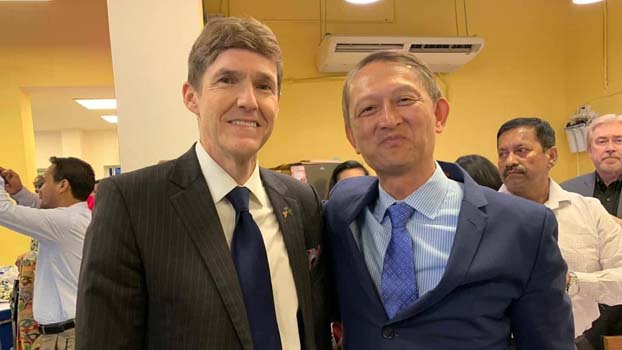Campus News
BracU holds seminar on preventing terrorism and extremism

Brac University (BracU) holds a seminar titled “Preventing Terrorism and Extremism through Community Engagement” at Mohakhali in Dhaka this Saturday.
Anti-terrorism unit (ATU) organized the seminar in collaboration with Community Development for Peace and BracU’s Professor Zainab Faruqui Ali, chairperson, Department of Architecture gave the welcome address while Didar Ahmed, ATU deputy inspector general (DIG) presented the opening speech. The seminar was attended by around 100 students of different schools, colleges, madrasas and universities.
“Terrorism will not be given an inch of space in Bangladesh” said by Md Moniruzzaman, additional DIG of police.
He also stated that around 56 per cent people so far held in connection with extremist activities in Bangladesh had a background in general education. This is the result of a study on 250 suspects held between 2015 and 2017 for their involvement in extremism.
“We should have respect for people of different nationalities and views. We must win the fight against hatred and terrorism. The positive change of society depends on you young people like you”, said US Ambassador Earl R Miller to the attendees.
“Such arrangement will make the students respectful to different cultures, religions, social values and opinions. We want to make our students more tolerant and responsible” said by BracU vice chancellor Professor Vincent Chang.
Professor Fuad Hassan Mallick, PhD, dean, Brac School of Design and advisor, postgraduate programmes in Disaster Management Board, BracU discussed several aspects of BracU’s Disaster Management Programmes.
Deputy High Commissioner (HC) of Australia Penny Morton, Deputy HC of Britain Kanbar Hossein Bor, additional inspector general of the ATU, Mohammad Abul Kashem, among others, also spoke at the seminar.
The main goal of this seminar was to raise awareness against negativity such as terrorism and radicalism to a large number of young students including 20% of the faculty members.


